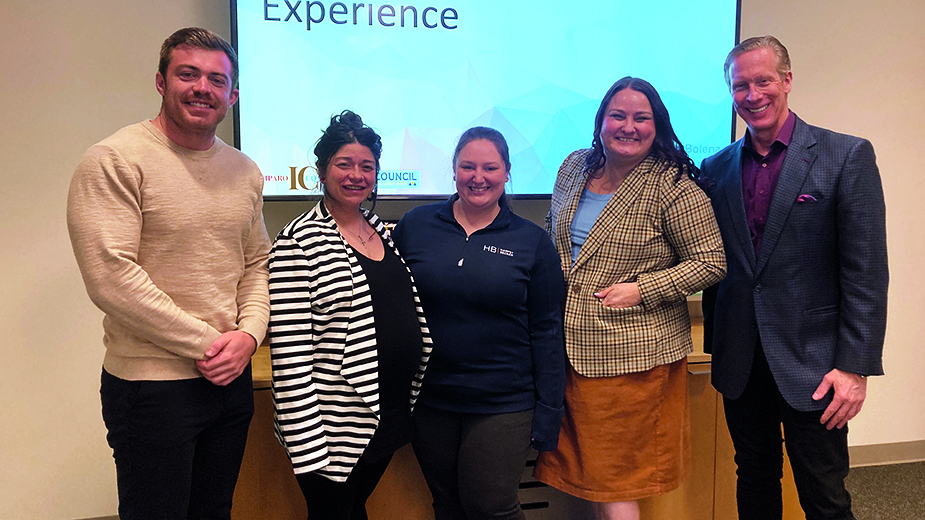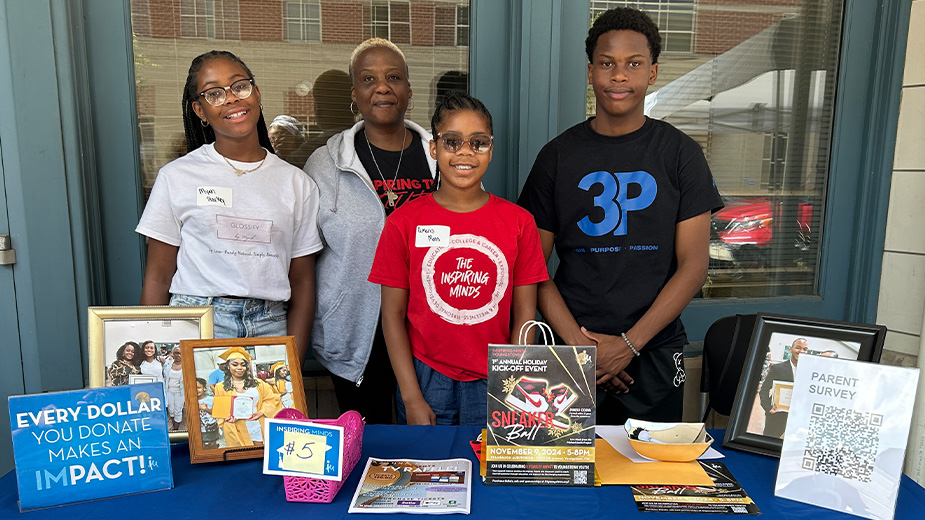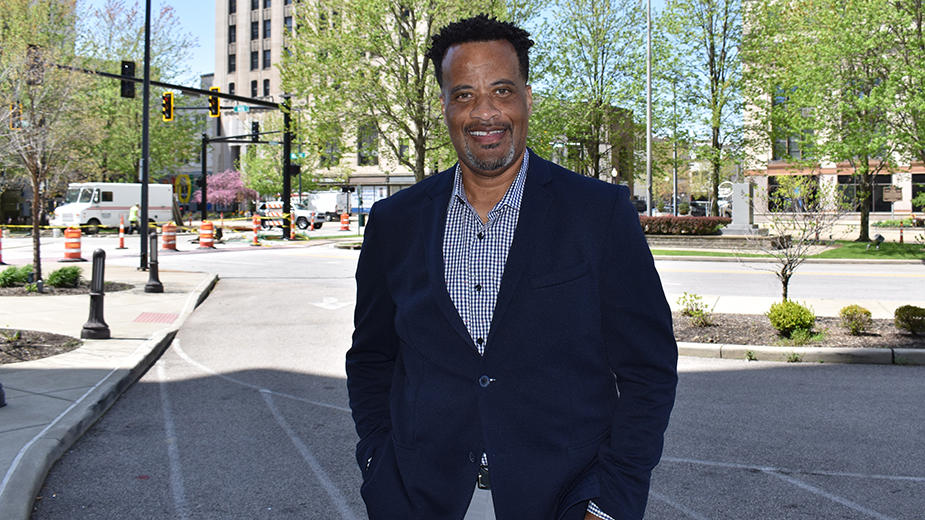Young Leaders Learn from Each Other
HERMITAGE, Pa. – Sharing knowledge, providing mentorship and establishing relationships are some of the advantages of peer advisory groups like those under development for professionals in Mercer County, Pa.
Four group members from the Future Leaders of Mercer County convened March 20 at Penn-Northwest Development Corp. to hear about the Emerging Leaders Peer Advisory Group, a new group being developed.
“It’s to enable leaders to build trusting relationships and to be able to adapt and thrive in both personal and business challenges,” says Daniel Bolena, managing director of Imparo Coaching, which leads the peer advisory groups.
The future leaders group is part of the Homegrown Initiative at Penn-Northwest Development Corp.
“I’m working with Penn-Northwest,” Bolena says. “I’m actually working to build a CEO advisory group too. … We thought this would be an awesome space to do something for emerging leaders.”
The Benefits
The relationships group members will build are deeper than those established at work or through networking groups, according to Bolena.
There will be times to give,” he says. “And there are going to be times when the others in the group are going to help you. This is what this is all about, building trust within that network.”
Members also grow through participation in the group. The group is a safe place and confidentiality is key, he says.
“It becomes an unbelievable support system for you,” Bolena says. “It’s just a great place to adapt and thrive. When you become part of one of these groups, it becomes irreplaceable.”
In the CEO peer advisory group, Bolena is careful to limit membership so no competitors belong to the same group. There wouldn’t be two CEOs from the same industry whose businesses compete in the same group, he explains.
It’s a confidential forum allowing leaders to engage with one another and work to advance their businesses and leadership skills. The first meeting was in February.
Emerging Leaders
Jake Rickert, director of workforce development at Penn-Northwest who leads the Homegrown Initiative, says the peer advisory group for emerging leaders is an extension of the Homegrown Initiative aimed at retaining and fostering talent and leadership in the region.
“We’re developing the next generation of community leaders,” he says. “They’re the next wave that’s going to be filling the business community, our nonprofits, our volunteers – and develop them and guide them to be the next wave of community advocates. It’s critically important.”
Homegrown targets and is run by young people, mostly younger than 35. It boasts about 30 active members. Getting young adults in early and introducing them to leadership roles provides them with the opportunity to continue the tradition of hard work forged by previous generations.
Bolena says his goal is to make the peer advisory group meetings the best part of members’ month.
“One of the things that we talk about in class is you need to go slow to go fast,” he says.
The meeting provides an opportunity for participants to take a step back, take a breather and allow others to help. “Sometimes, someone else, when they give you insight and perspective, you learn from them. You can learn so much so much faster and it would take you years” without others’ perspectives, he says.
How It Works
Participation in a peer advisory group enables members to get feedback, learn where their own blindspots are, discuss problems, share collective wisdom and build accountability.
As an exercise, participants developed open-ended questions to ask each other about a career or business issue. Bolena calls those issues COPI – challenge, opportunity, problem or idea. Usually, people think that has to be something negative like a problem with an employee, he says.
“But it could be, ‘I just got promoted. How do I prepare for my new role?’ ” he asks.
It could also be how to develop new marketing strategies for attracting clients, Bolena adds. “Here’s where the magic happens. I love this part of the meeting, the power of the question,” he says.
He encourages meeting participants to form their questions to be broad stroke inquiries such as “how do I?”
“Powerful leaders ask really good questions,” Bolena says. “You can be the chief problem solver and just do it all for them or you can mentor them and guide them through questions and be there as needed when they stub their toes.”
After the exercise, Rickert says he’s found that emerging leaders in the area excel in one field.
“But – and it comes with age and experience — we all kill it in one spot and we’re all a little bit weaker in all the rest …” he says.
The emerging leaders peer advisory group will meet about every six weeks while the CEO peer advisory group gathers monthly. Members will pay tuition to participate.
Homegrown’s Rickert says he’s more of a big vision rather than a detail person. “It’s nice to see someone who is very good at the details and kind of, ‘Hey, I kill it in this box. How do I expand that box?’ That was exactly what I was hoping it would be.”
More information about Imparo Coaching is available at www.imparocoaching.com.
Pictured at top: At a preview meeting of the Peer Advisory Council for Future Leaders of Mercer County are Jake Rickert, director of Workforce Development at Penn-Northwest Development Corp.; Francesca Baldarelli-Cook of the Hope Center of Arts and Technology Inc,; Delaney Lantz, attorney at Harpst Becker; Deb Groover, project administrator at the Community Foundation of Western Pennsylvania and Eastern Ohio; and Daniel Bolena, managing director of Imparo Coaching.
Copyright 2024 The Business Journal, Youngstown, Ohio.



